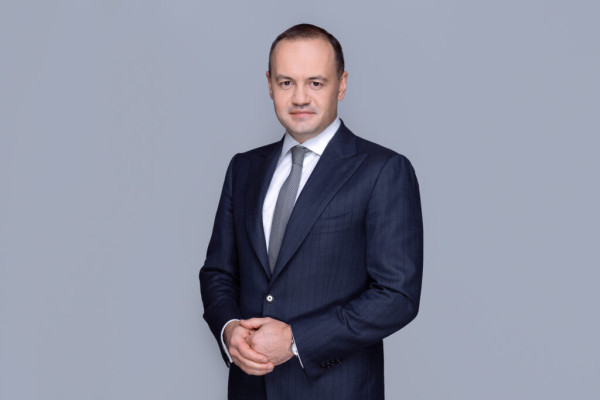Help us build wind farms to beat Russian bombs, Ukraine tells EU
Building more green energy plants will help Ukraine keep the lights on as Russia bombards the country's power system, the head of the country’s largest private energy firm told POLITICO.
But Ukraine needs the EU to do that.
In an interview, DTEK CEO Maksym Timchenko said that investment risks related to the war have left firms like his unable to access capital or insurance for new projects.
“Unfortunately, we are not in a position to build big solar or wind farms because of this,” he said, insisting that “all the rest is in place” for the firm to start investing.
The need is urgent. Since late March, Russia has upped its drone and missile strikes targeting Ukraine's energy infrastructure. DTEK, which supplies a fifth of Ukraine’s electricity, announced this week it had lost 80 percent of its generation capacity and said five of its six coal-fired power plants were “seriously damaged.”
Those attacks, which caused hours of blackouts in Ukraine’s eastern Kharkiv region, will cost “$300 million” to repair and take up to eight months to complete, Timchenko said.
But that won't address the broader problem: Russia can cut Ukraine's power by hitting several critical sources. If Ukraine's energy production was instead spread across hundreds of wind turbines, for instance, the country wouldn't have “to concentrate [such] large amounts of power generation in one place,” Timchenko said.
The energy crisis comes at a difficult time for Kyiv, which is suffering an acute ammunition shortage at the frontline as U.S. Republicans block desperately needed aid. So far, Ukraine has suffered $12 billion in damage to its energy sector since Moscow launched its full-scale invasion in 2022, according to recent World Bank estimates.
To help, Timchenko said, the EU should immediately contribute cash to rebuild the firm's energy infrastructure. Brussels should also send electrical equipment like transformers, control systems and turbines.
Still, getting coal plants back online is only a “temporary solution,” he argued, adding that DTEK’s “priority” was now turning to large investments in wind and solar farms.
Last May, DTEK opened a 114-megawatt wind power plant in Ukraine’s southern Mykolaiv region, working closely with the Danish government. The firm plans to expand the plant to 500 MW by 2025. That project should serve as a “benchmark” for other governments, Timchenko said.
“I appeal to institutions like the European Bank for Reconstruction and Development, European Investment Bank … so that they will start helping us” with accessing capital and de-risking guarantees, he added, insisting more green projects would also have wider benefits.
“It's not only for our own consumption but also for exporting to Europe — and I think that renewables in Ukraine help the European Union to accelerate [its own] green transition,” Timchenko said.

An EBRD spokesperson said the bank was “considering further emergency support … to stimulate private sector investments in [Ukraine’s] renewable energy sector,” having already mobilized €870 million for its energy sector since 2022.
The European Commission declined to comment on DTEK's calls but pointed POLITICO to a recent statement from the institution encouraging EU countries “to step up efforts” on supporting Ukraine with energy supplies.
An EIB spokesperson also declined to comment but similarly pointed to the bank's recent efforts to mobilize €2 billion “for emergency repairs to critical infrastructure” in Ukraine.
In the longer term, DTEK is also planning to recoup revenues by hauling Russia to court over its attacks on energy infrastructure, Timchenko said.
Last November, the firm was awarded $267 million in damages by an international court after Kyiv successfully sued Moscow for seizing its assets in Crimea following its illegal annexation of the peninsula a decade ago.
The firm is now preparing to launch a “huge claim” against Moscow on all damage dealt by Russia to its energy assets in Ukraine’s eastern Donbas region since 2014, he said.
That means, Timchenko claimed, “eventually Ukraine will [be able] to pay for all losses incurred.”